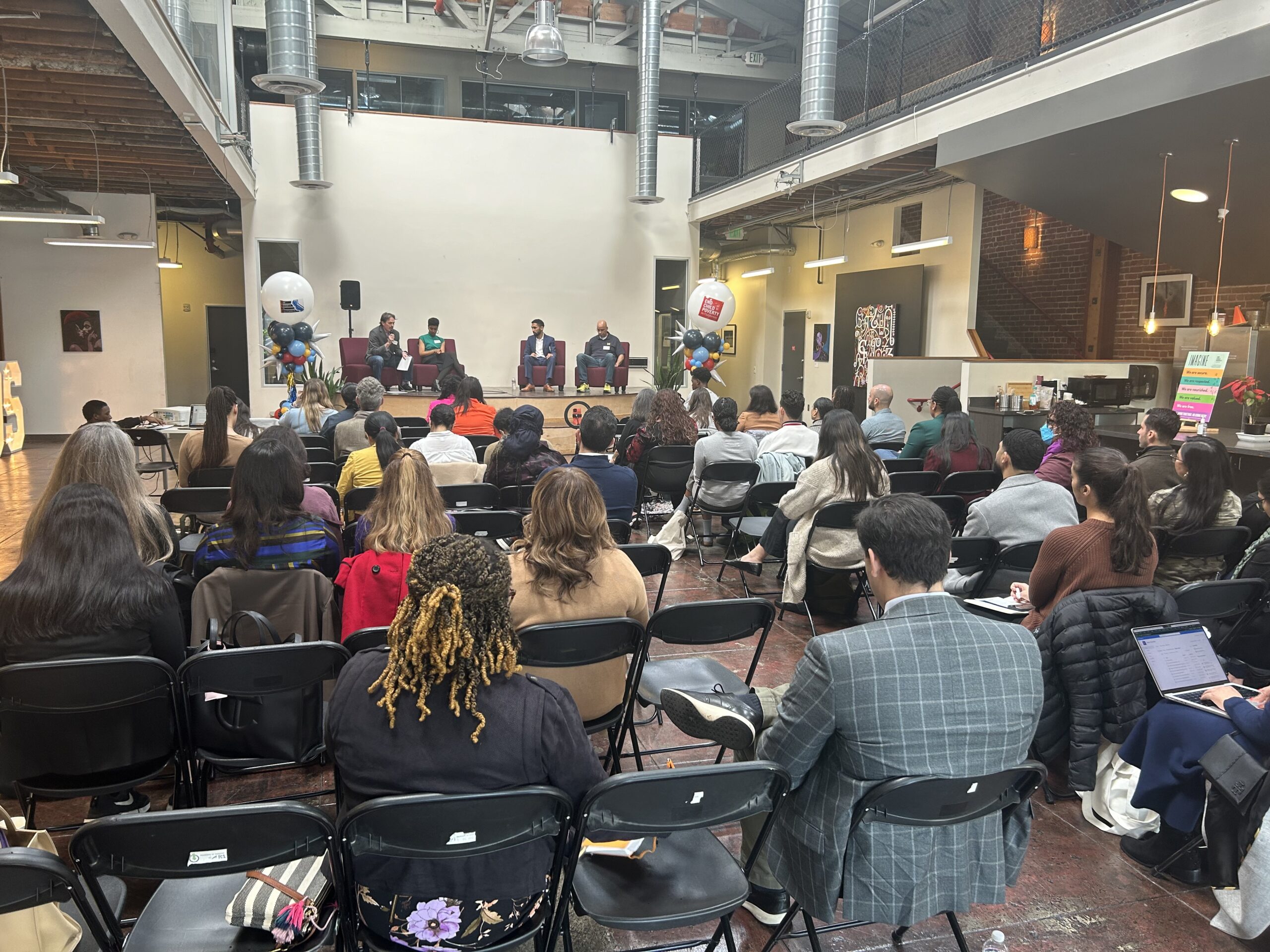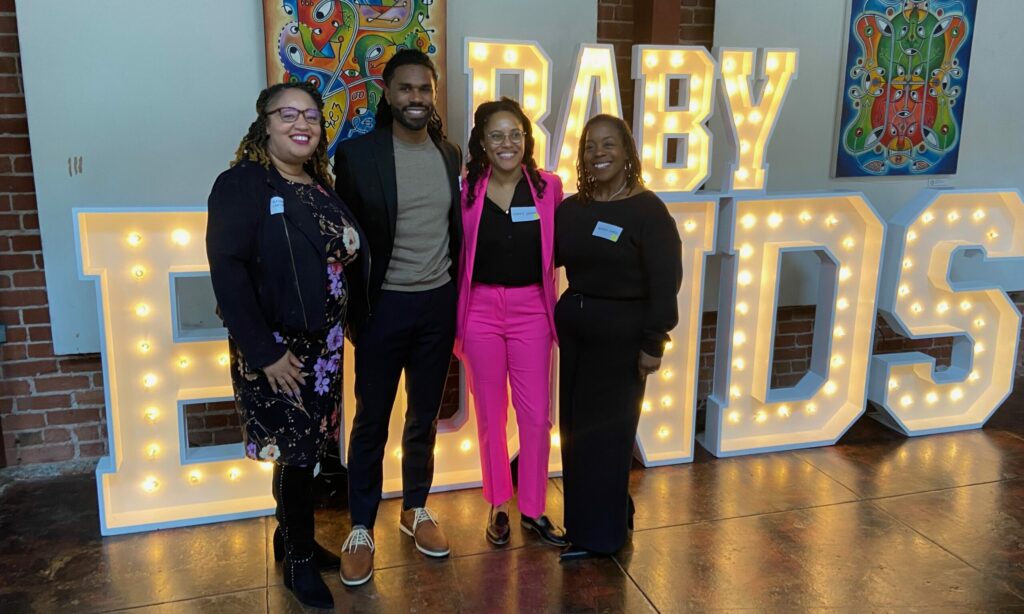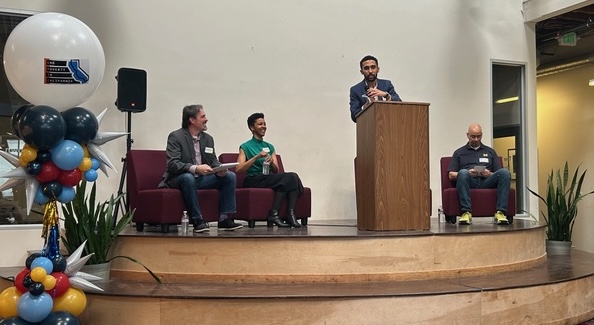Category: Housing, Justice, Listening Sessions, Personal Stories, Poverty News & Policy Updates, The Safety Net, Wealth Building, Work

June 05th, 2024
Devon Gray is the president of End Poverty in California. He previously served as a special adviser in Gov. Gavin Newsom’s administration. Shimica Gaskins is President & CEO of GRACE/End Child Poverty CA.
This article originally appeared in the Institute on Race, Power, and Political Economy’s Baby Blogs.

Here in California, we are thrilled to be coming out of the gate with Connecticut to show the nation what a large scale investment in the future of our youths can do. Our baby bonds program—called HOPE Accounts—is seeded by the state and invested on behalf of the recipients who are foster youth or young people who lost a parent to COVID.
Recently in Oakland, our organizations had the privilege of hosting many others from across the nation who are equally enthusiastic about baby bonds. Advocates, practitioners, and directly-impacted youth participated in our day-long convening, Baby Bonds in Action: From California to the Nation’s Capital!. While we came together to exchange ideas on baby bonds, the day was filled with robust discussion on closing the racial wealth gap, the roles of guaranteed income and child savings accounts, and the bold steps needed to create opportunities for youth to be the architects of their own futures.

We heard from The Godfather of Baby Bonds himself, Dr. Darrick Hamilton; baby bonds policy leaders in Connecticut, Washington State, and California; leading thinkers like Dr. William Elliott, Director of the Center on Assets, Education, and Inclusion at the University of Michigan, and Solana Rice of Liberation in a Generation; and former foster youth—members of the State of California’s “Youth Panel of Experts” that also includes young people who lost a parent to COVID. These youths are helping the state with designing the implementation and outreach for our HOPE Accounts baby bond program and are also engaged in storytelling. Finally, the Poet Laureate of Antioch performed a spoken word interpretation of what he heard that day.
The big takeaways from the convening were that we must continue to center and listen to young people in our policy creation and decision-making. The youth panel’s ability to speak to how a baby bond would increase their sense of agency and help them realize their own dreams makes the policy less abstract, communicates the very real stakes for young people and their families, and lifts up shared values around economic mobility, fairness, and making the American Dream real.
The other incredibly exciting takeaway from our event is a seemingly unanimous desire to break the silos between direct cash assistance and wealth-building work—particularly around baby bonds, guaranteed income, and children’s savings accounts. Creating an income floor and the opportunity to build generational wealth—and the myriad approaches to doing that—should be recognized as integral parts of an effort to make economic mobility truly accessible to anyone in the nation. The people involved in this work must talk to one another, learn from one another, and amplify one another’s work, including through a shared framing that communicates the many policy tools available to build and sustain wealth.

In California, approximately 58,500 youth will receive access to $4,500 in their HOPE Accounts at age 18, and the money will remain available until age 26. While the program allows participants the autonomy in deciding how to utilize the funding, many members of the Youth Panel of Experts expressed a desire for financial literacy mentoring and training, which will be made available to program participants.
California’s HOPE program is planning to launch in 2025 with its first recipients over 18 being able to draw down available funding. This timeline presents a unique opportunity to learn from youth and to study the kinds of impacts that baby bonds can have without needing to wait nearly two decades. Moreover, because California is also spending $1 billion on Guaranteed Income pilots, and over $3 billion on Children’s Savings Accounts (called CalKIDS), we will be able to examine the synergistic effects of wealth-building and direct cash transfers. Through this initiative, we hope to make a major contribution to how the nation understands building and sustaining wealth, reducing the racial wealth gap, and the government’s role in leveling the playing field so that we can also close the opportunity gap that exists for far too many children in California and across the nation.
As the movement for baby bonds continues to grow, including in the private sector, we are excited to be part of the work that is producing real results at the policy level and gaining traction through education and increased media attention. We hope this increasingly coordinated and vibrant movement will send a loud and clear message to our friends in the federal government about what is possible.